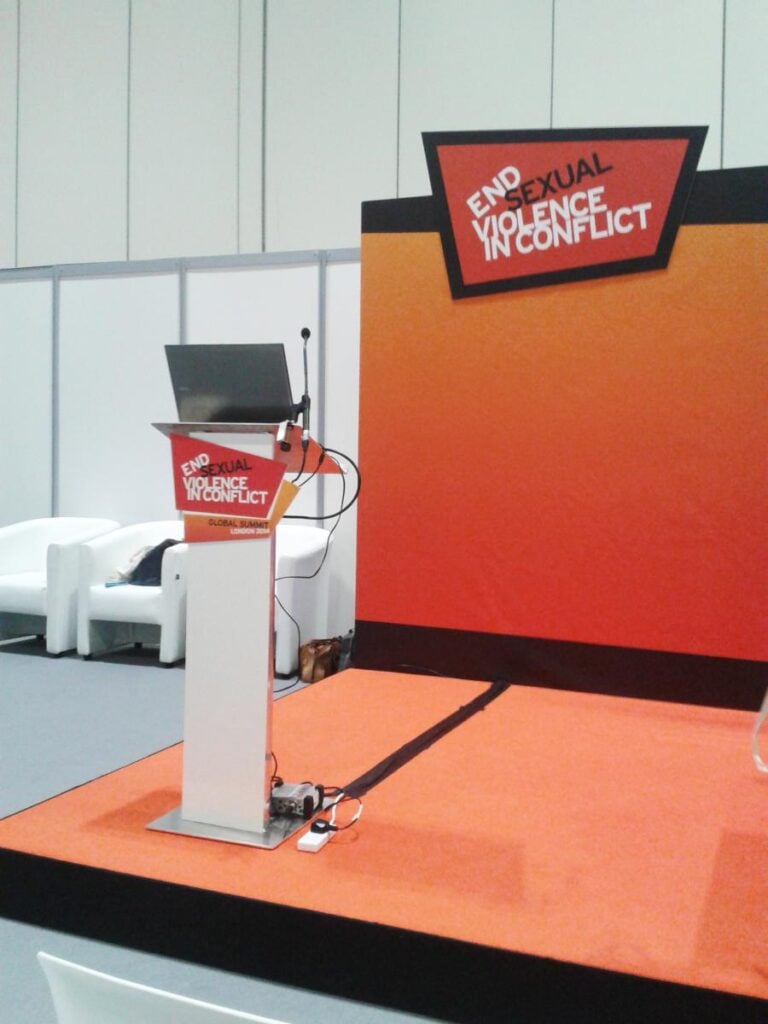Addressing Gender Based Violence and Sexual Violence in Conflict
Integrity staff attended the Global Summit to End Sexual Violence in Conflict, the largest gathering to date on the issue. Integrity work in fragile and conflict-affected environments where sexual violence is prevalent and often used as a weapon of war.
While at the summit, Integrity witnessed a meeting to launch the UK’s National Action Plan on Women, Peace and Security, which William Hague, Justine Greening and Philip Hammond all signed and spoke about.
Click here to view the National Action Plan on Women, Peace and Security..
Key points from the summit regarding the UK
- There is a shared principle that women are central to the approach to tackling conflict and building peace and stability.
- The UK should use privileged positions in multilateral organisations, including the UN, the EU and NATO to further these goals.
- There will be focused support on selected countries: Afghanistan, Myanmar, DRC, Libya, Somalia and Syria.
- The UK will do more to monitor, measure and evaluate its impact while being visible, transparent and accountable.
- It is important to work with men and boys.
- Clear guidance on spending on this work will be established.
- These initiatives will link to broader work on women’s rights, access to justice and the prevention of violence.
Gender-based violence (GBV) and sexual gender-based violence (SGBV)
The level of violence against women in post-conflict environments is alarming, and this issue is heightened by a lack of documentation and statistical analysis. GBV and SGBV are difficult to accurately monitor, as incidents often go unreported because women are unaware or unable to assert their rights. As such, GBV and SGBV are the most difficult forms of violence to assess. It is for this reason that dedicated reporting and monitoring tools must be implemented.
The issue of media in conflict as it relates to GBV is also very important, specifically, media in conflict have a tendency to leverage stories of rape or abuse as a way to discredit opponents. The privacy of survivors is of little consequence and the result is that women are often victimised multiple times.
Previous work surrounding these issues
From a study on reducing violence against women in humanitarian emergencies in Sierra Leone, DRC and Burundi, Integrity recommended revising activities and scope to deepen impact and understanding by building capacity in conflict and gender analysis to increase understanding of the root causes of the problem.
Last year Integrity carried out a scoping report in DRC, which resulted in widely applicable recommendations, among them:
- Encouraging greater national ownership and leadership by shifting the international narrative on sexual violence from one of abhorrence, disapproval and reprimand to one of support for current efforts, recognition of challenges and reaffirmation of UK support.
- Ensuring that engagements with the government continue to press for legal reform to address amendments to the 2006 sexual violence law
- Encouraging international actors to pay more attention to conflict sensitive approaches to programme design and delivery, particularly in the Security and Justice Sectors. Advocate adherence to the principles of ‘do no harm’.
More recently, Integrity has provided recommendations to inform programming on child trafficking by assessing two of Nairobi’s informal settlements where children are subjected to trafficking for domestic labour and sex work among other forms.
You can read more on the conference and Integrity’s viewpoint here.


